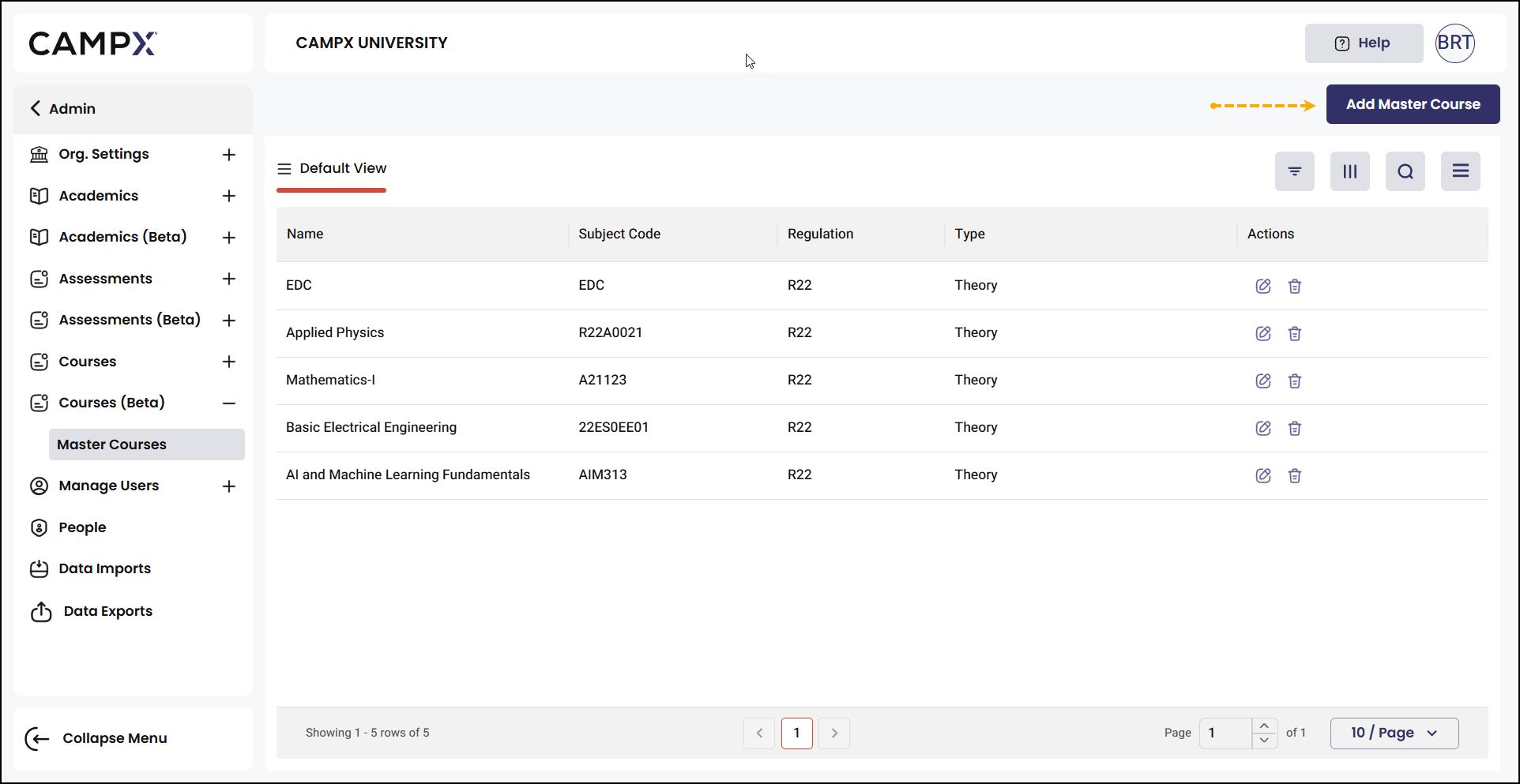Master Courses
Overview
Master Courses is designed to streamline the management of common academic subjects across various departments or branches within an institution. This functionality is particularly beneficial for subjects like fundamental English, Basic Mathematics, Physics, or Chemistry which often share identical examination patterns, template structures, and grading systems across all disciplines (engineering, for example). Instead of redundant, individual configurations for each branch, a single/standardized Master Course template can be established and utilized by all relevant departments. This ensures consistency and significantly reduces administrative overhead.
Features
This new feature provides a centralized and efficient method for managing academic subjects.
- Centralized Grouping: Enables the grouping of subjects that share the same course code across different branches or departments.
- Enhanced Consistency: Facilitates centralized management, thereby ensuring uniformity and consistency in course offerings.
- Reduced Redundancy: Minimizes repetitive data entry by streamlining the course creation process.
- Automated Updates: Guarantees automatic propagation of updates related to units, topics, assessments, and grades to all linked instances of a master course.
- Increased Efficiency & Standardization: Designed to significantly improve operational efficiency and foster greater standardization in curriculum management throughout the institution.
Benefits
Master Courses offer significant advantages, particularly for institutions with standardized curricula across multiple entities.
- Suitability for Identical Subjects: This feature is ideally suited for managing subjects that are identical in content and structure across various departments or branches.
- Synchronized Updates: Centralized updates to a master course are automatically reflected across all linked instances, ensuring consistency.
- Streamlined Configuration: Allows for one-time configuration of critical course parameters:
- Assessments
- Grades
- Pass percentages
- Efficiency and Alignment: Contributes to substantial time savings and ensures consistent curriculum alignment across the institution.
Navigation
- Navigate to Admin >> Courses (Beta) >> Master Courses. The screen displays a table of existing Master Courses showing their Name, Subject Code, Regulation, Type, and Edit/Delete Actions.
- To add a new Master Course, click on
Add Master Courselocated at the top-right corner of the interface. This action will initiate the process for defining a new common subject template. - Once a master course has been added, its details need to be configured. Go to Admin >> Courses >> All Courses.
- Click
View(eye) icon of the just created Master Course. Fill up the form; click here for detailed instructions.

-
One-time configuration of Master Course eliminates the need for individual setup across all associated branches or programs, ensuring consistency and saving significant administrative effort year on year, unless format or subject content changes necessitate an update.
-
The updated system is designed to integrate disparate academic components including course/subject codes, assessment templates, grading rubrics, and credit units into a single/unified master group. This consolidation facilitates a cohesive management approach, where these elements are treated as a singular entity and applied uniformly across related academic structures, conceptualized as a "parent-child" relationship.
-
Furthermore, the development of this Master Courses system has been meticulously designed with a strategic focus on streamlining data for essential accreditation processes, such as those required by NAAC and NBA as well as OBE, thereby enhancing the accuracy and efficiency of accreditation calculations.
-
The existing "Admin --> Academics" menu and its sub-menus are slated for deprecation in the near future, with all relevant functionalities being absorbed into this new framework.